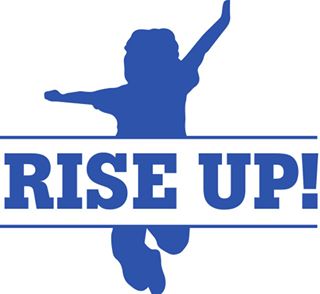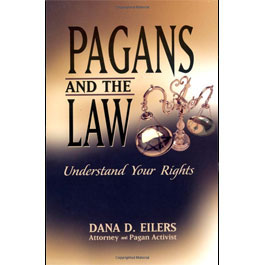[Remember our Fall Fund Drive is still going on. Your support and your donation is what make our work possible. If you like reading our articles and commentary daily, please consider donating today and help keep The Wild Hunt going for another year. Thank You.]
On Monday, the Supreme Court of the United States (SCOTUS) rejected the appeal of Ohio science teacher John Freshwater, who was fired for teaching Creationism in the public school system. The case, Freshwater v. Mount Vernon City School District Board of Education, first made its way through the Ohio courts, where it was ultimately ruled that “the Mount Vernon City School District Board of Education had ‘good and just cause’ to terminate John Freshwater’s teaching contract.” When the appeal reached the Supreme Court, the justices rejected it, thereby, allowing the Ohio court’s opinion to stand.
 This case is a recent example of a public school system becoming the playing field for a tug of war match between secularism and religion. According to Americans United (AU), the teacher not only taught Creationism in the classroom, but he displayed and handed-out religious material, and also performed surveys of students’ religious beliefs. AU also notes that the teacher was “accused of using an electronic device (a Tesla coil) to burn a cross into a student’s arm.”
This case is a recent example of a public school system becoming the playing field for a tug of war match between secularism and religion. According to Americans United (AU), the teacher not only taught Creationism in the classroom, but he displayed and handed-out religious material, and also performed surveys of students’ religious beliefs. AU also notes that the teacher was “accused of using an electronic device (a Tesla coil) to burn a cross into a student’s arm.”
Although the Ohio courts ruled that it was legal for Freshwater to place his personal Bible on the desk, his actions were otherwise out of line. AU Legal Director Ayesha N. Khan said, “Freshwater was using his position to foist his religious beliefs onto impressionable students. The courts rightfully put a stop to that.”
For Pagan and Heathen parents or others practicing minority religions, there may come a time when religion is “foisted” upon their children within the public school environment. In most cases, the situation is likely an unthinking act, and indicative of a changing culture or shift in demographics. Minor missteps do happen and can often be remedied through conversations, education and awareness. Unfortunately, in some instances, such as the Ohio case above, the acts are blatant attempts at promoting a single religion.
Last year, Florida’s Orange County School Board allowed The World Changers of Florida to distribute Bibles to their students. After being sued by the Freedom From Religion Foundation and the Central Florida Freethought Community, the school board approved the distribution of other religious material, which now includes pamphlets on Atheism and the Satanic Temple’s coloring book called “The Satanic Children’s Big Book of Activities.”
Similarly, the Madison County School Board in Georgia allowed a privately funded religious monument to be erected outside a high school football team’s field house. According to local news, the statue reads, “Romans 8:31: ‘If God be for us who can be against us?’ and Philippians 4:13: ‘I can do all things through Christ which strengtheneth me.’ ” Last month, the school board was contacted by both the American Humanist Association and the Freedom From Religion Foundation and is now facing a potential lawsuit.
In all three of these cases, the intention and, therefore the violation, is very clear. However, not all cases are quite as “cut and dry.” Over the past fifteen years, a national organization called “The Good News Club,” has been establishing after-school enrichment programs within public school buildings. With the growing number of working parents, these in-school extracurricular programs have become increasingly popular, serving a very needed purpose for modern families.
However, The Good News Club is a division of The Child Evangelism Fellowship and has a clear and direct religious initiative. In 2001, the Supreme Court ruled that the club, and others like it, can legally hold after-school meetings within public school buildings. (The Good News Club v. Milford Central High School) Despite that ruling, the club’s presence continues to spark controversy.
In Portland, Oregon, a large coalition has recently formed with the aim of stopping the Good News Club’s in-school activities. According to The Oregonian, its formation was sparked when Katherine Stewart published her book called The Good News Club: The Religious Right’s stealth assault on American Children.
Due to the SCOTUS ruling, that situation is not easy to legally negotiate. In an interview with The Oregonian, ACLU David Fidanque said, “I don’t know that there is a bright line anymore.” While acknowledging the club’s legal right to be in the school, he expressed real concern saying:
Keeping the government out of religious affairs is the single most important thing we can do to protect religious freedom in this country. If we allow our government institutions to endorse particular religious viewpoints, or even to promote religion in general over non-religion that is a threat to every form of religion.
 Even if The Good News Club is staying within its constitutional rights, Fidanque’s concerns are justified when looking at other similar situations. Growing in popularity in Georgia is another after-school religious club called Rise UP. The organizers make no effort to mask their affiliation with area schools. The website advertises, “Several other local elementary schools expressed interest in starting a similar program. We were excited about the possibility of partnering with these other parents and schools… there are new schools joining the RISE UP! Team as each school year starts – RISE UP! has a total of 9 elementary schools participating!” Did the schools ask to join or did the club ask to use the space? Does that distinction matter?
Even if The Good News Club is staying within its constitutional rights, Fidanque’s concerns are justified when looking at other similar situations. Growing in popularity in Georgia is another after-school religious club called Rise UP. The organizers make no effort to mask their affiliation with area schools. The website advertises, “Several other local elementary schools expressed interest in starting a similar program. We were excited about the possibility of partnering with these other parents and schools… there are new schools joining the RISE UP! Team as each school year starts – RISE UP! has a total of 9 elementary schools participating!” Did the schools ask to join or did the club ask to use the space? Does that distinction matter?
Another way school systems intentionally or unintentionally allow religious speak into their public space is through visiting authors. Schools often hold assemblies during which a writer might speak, entertain, and read from his or her latest book. It is a very common occurrence and, in most cases, quite innocuous.
However, when that author writes with a strong religious directive, like popular Christian author Bryan Davis, the assembly could become problematic. Davis’ books reflect a deep connection to his own personal theology. While his work is certainly fitting for church assemblies, is it appropriate for public school children? Is it constitutionally legal for Davis to be speaking about and selling books that openly promote the celebration of one’s “God-given talents” and overtly discuss “faith, prayer and redemption” within the public school system? Interestingly, two of the participating middle schools are in Orange County, Florida, where the Bibles are being distributed.
These are only a few recent examples of cases in which an uncomfortable situation could arise for Pagan, Heathen or other families practicing a minority religion. There are many others situations from the minor missteps by a well-meaning teacher to the blatant promotion of a single religion. On Polytheist.com, parent Niki Whiting described her own encounter:
For a few brief weeks when we sent my son to the neighborhood kindergarten we had to deal with his confusion around the Pledge of Allegiance. I was surprised that this was still said in schools. He came home and asked why the school was trying to make him Christian. Already, in his (then) 5 short years of life, he knew that when people say ‘God’ they are mostly referring to Yahweh. “Don’t they know that the world is full of gods?” he asked. No, no, my son, they do not.
 While every situation doesn’t need a lawyer, there may be times when a friendly email is just not enough. What should a parent do in such situations? In her book Pagans and the Law, lawyer Dana Eilers suggests, “A basic understanding of the Constitution, the First Amendment, and their history is essential to grasping the enormity of religious freedom.” Her book lays out the basics as they pertain specifically to Pagans. She writes, “It is highly recommended that everyone read this document, boring as it appears. It is what stands between you and 10 thousand years of discrimination, persecution, and darkness.”
While every situation doesn’t need a lawyer, there may be times when a friendly email is just not enough. What should a parent do in such situations? In her book Pagans and the Law, lawyer Dana Eilers suggests, “A basic understanding of the Constitution, the First Amendment, and their history is essential to grasping the enormity of religious freedom.” Her book lays out the basics as they pertain specifically to Pagans. She writes, “It is highly recommended that everyone read this document, boring as it appears. It is what stands between you and 10 thousand years of discrimination, persecution, and darkness.”
Another resource is Lady Liberty League. Co-founder Rev. Selena Fox has this recommendation:
Documentation is essential. Keep a log with dates and details of what has happened and what has been done to express concerns and get positive resolution. Check into the school’s policies and processes for filing complaints and voicing concerns. Keep a copy of every written communication you make and receive regarding the situation. Share this information with individuals and organizations you contact for help.
While fighting these battles may be difficult, costly and time consuming, not every situation leads to a lengthy court battle. Byron Ballard, who has worked extensively and very successfully with North Carolina’s Buncombe County School Board, found herself in the middle of such a situation in 2011. As reported by The Wild Hunt, the school board allowed Bibles to be distributed to students and a Pagan mother protested. Ballard was an integral part of resolving the tensions and finding workable solutions. Ballard advises looking for allies, adding that some may “come from surprising places.” Some of her allies have been leaders from mainstream religious institutions. She says:
My best advice is to stay grounded, be persistent and try to really listen to all sides of the issue at hand. This work is about rights and responsibility, about shifting cultures. But it’s actually about making public schools safe places for all children to learn and to grow into caring, compassionate adults.

![[Photo Credit: Flickr's Liz cc-lic]](http://wildhunt.org/wp-content/uploads/2014/04/Elementary_classroom_in_Alaska-500x375.jpg)